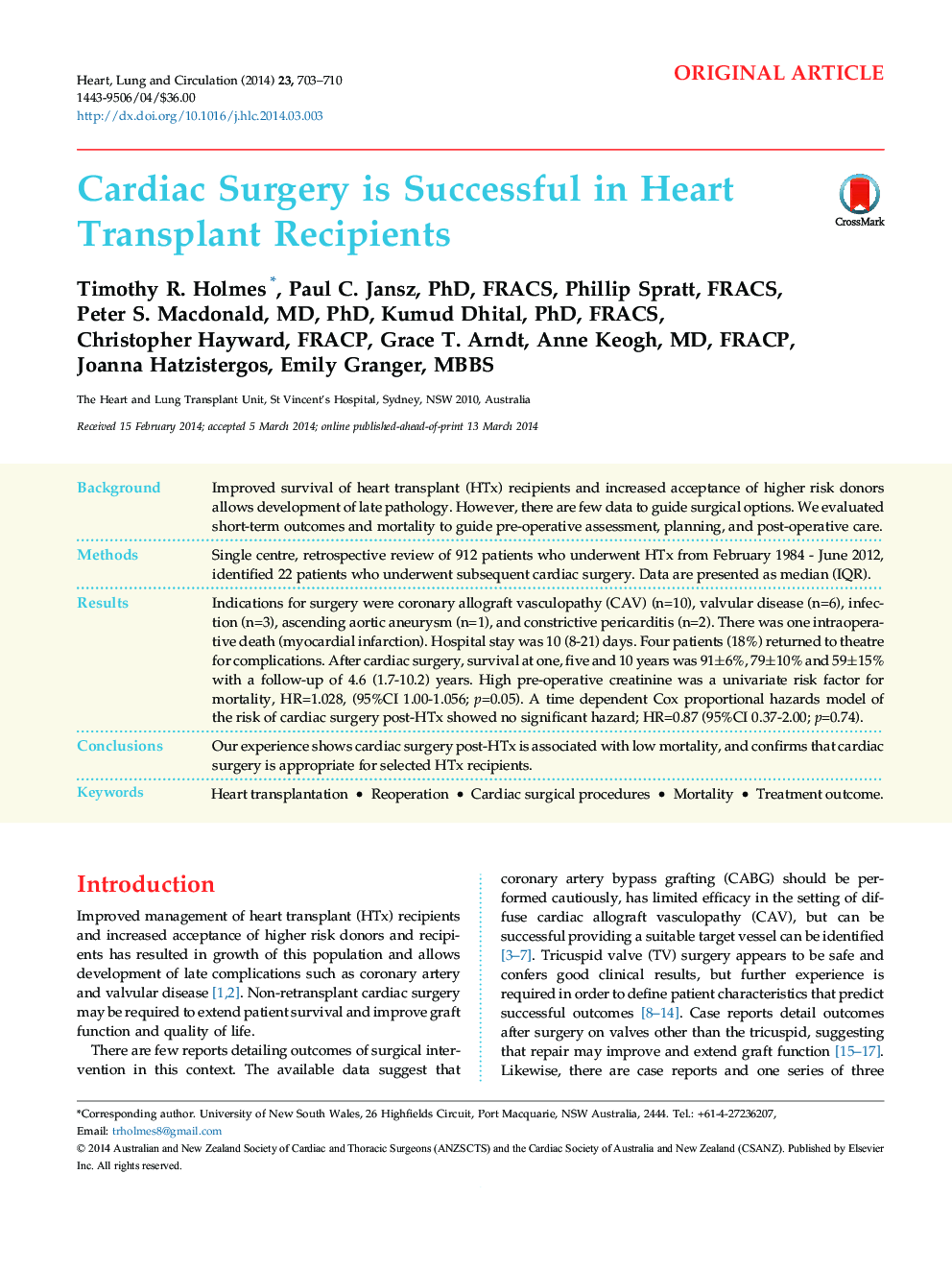| Article ID | Journal | Published Year | Pages | File Type |
|---|---|---|---|---|
| 2917740 | Heart, Lung and Circulation | 2014 | 8 Pages |
BackgroundImproved survival of heart transplant (HTx) recipients and increased acceptance of higher risk donors allows development of late pathology. However, there are few data to guide surgical options. We evaluated short-term outcomes and mortality to guide pre-operative assessment, planning, and post-operative care.MethodsSingle centre, retrospective review of 912 patients who underwent HTx from February 1984 - June 2012, identified 22 patients who underwent subsequent cardiac surgery. Data are presented as median (IQR).ResultsIndications for surgery were coronary allograft vasculopathy (CAV) (n=10), valvular disease (n=6), infection (n=3), ascending aortic aneurysm (n=1), and constrictive pericarditis (n=2). There was one intraoperative death (myocardial infarction). Hospital stay was 10 (8-21) days. Four patients (18%) returned to theatre for complications. After cardiac surgery, survival at one, five and 10 years was 91±6%, 79±10% and 59±15% with a follow-up of 4.6 (1.7-10.2) years. High pre-operative creatinine was a univariate risk factor for mortality, HR=1.028, (95%CI 1.00-1.056; p=0.05). A time dependent Cox proportional hazards model of the risk of cardiac surgery post-HTx showed no significant hazard; HR=0.87 (95%CI 0.37-2.00; p=0.74).ConclusionsOur experience shows cardiac surgery post-HTx is associated with low mortality, and confirms that cardiac surgery is appropriate for selected HTx recipients.
